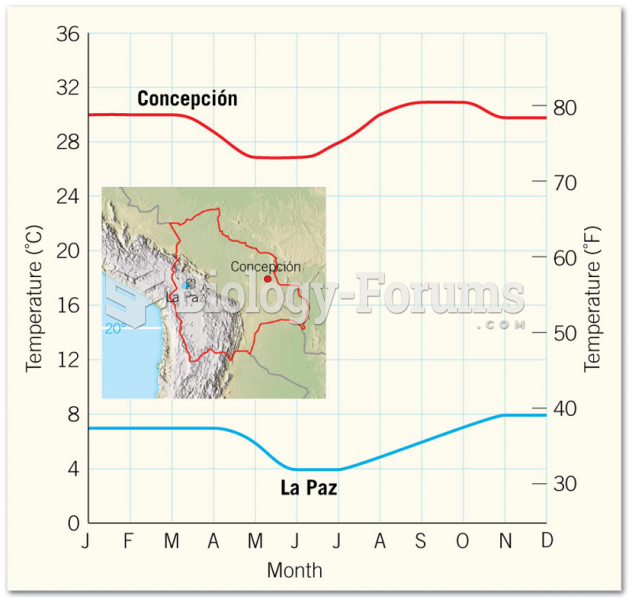|
|
|
The average human gut is home to perhaps 500 to 1,000 different species of bacteria.
There are 60,000 miles of blood vessels in every adult human.
Congestive heart failure is a serious disorder that carries a reduced life expectancy. Heart failure is usually a chronic illness, and it may worsen with infection or other physical stressors.
Though newer “smart” infusion pumps are increasingly becoming more sophisticated, they cannot prevent all programming and administration errors. Health care professionals that use smart infusion pumps must still practice the rights of medication administration and have other professionals double-check all high-risk infusions.
Bacteria have been found alive in a lake buried one half mile under ice in Antarctica.







